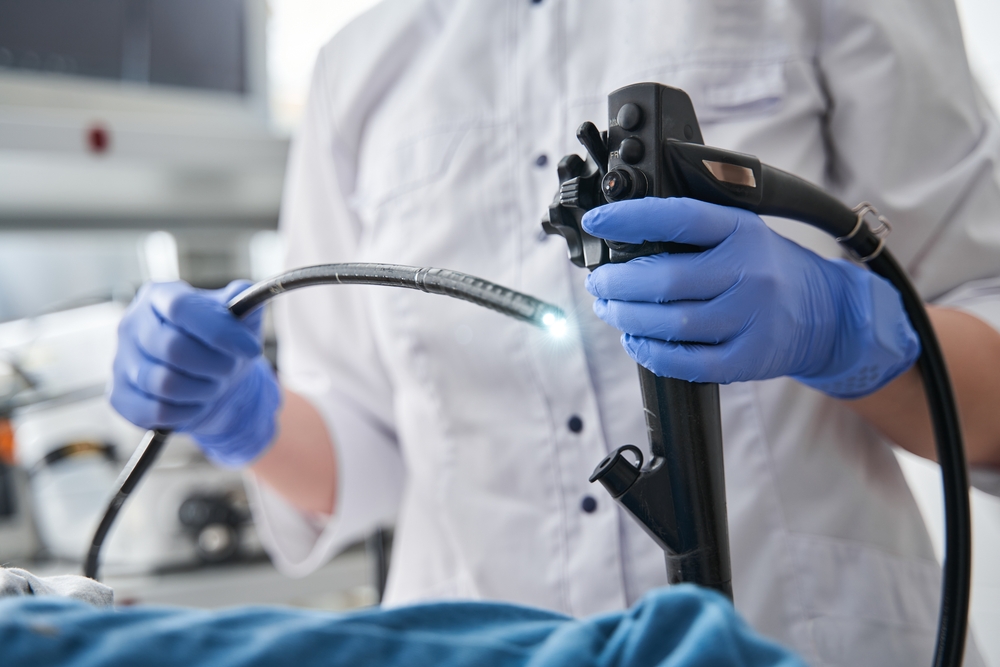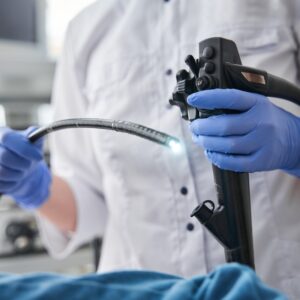Why should you get a blood test?
A blood test allows doctors to assess your overall health condition more accurately and detect various diseases, including anemia, infections, and leukemia. Blood tests also provide insights to doctors about potential underlying health risks based on laboratory reports, helping them decide whether further evaluation is necessary.
Can blood test detect cancer?
If a doctor suspects cancer, they may recommend certain blood tests or related laboratory examinations, such as urine analysis or tissue biopsies from suspicious areas, to aid in the diagnosis.
The concept of using blood tests to detect early-stage cancer is based on the principle that tumor cells periodically release fragments of their DNA into a person’s bloodstream. Laboratory technicians analyze blood samples to check for signs of cancer. Blood tests can also provide information to your doctor about the functionality of your organs and whether they are affected by cancer. However, in cases where the amount of DNA in the blood is too low, it may not be sufficient for doctors to rely solely on the test results for diagnosis, particularly in smaller tumors.
Therefore, apart from blood cancers, blood tests generally cannot definitively determine whether you have cancer or another non-cancerous condition. However, they can serve as valuable indicators of your overall health condition.
Common blood test items
Complete Blood Count (CBC)
This common blood test measures the quantity of various types of blood cells in a blood sample. If abnormalities are detected in a specific type of blood cell, there is a chance of developing blood cancer. Additionally, a bone marrow tissue examination may help confirm a diagnosis of blood cancer.
Blood Protein Testing
This test is used to assess the status of various proteins in the blood, which can help detect certain abnormal immune system proteins (immunoglobulins). Elevated levels of these proteins may indicate multiple myeloma. Other examinations, such as bone marrow tissue analysis, can also aid in diagnosis.
Tumor Marker Testing
Blood tests can detect chemicals produced by tumor cells, known as “tumor markers.” However, as certain normal cells can also produce tumor markers, relying solely on tumor marker testing as a diagnostic factor is limited. Doctors do not often rely solely on tumor marker testing to confirm a cancer diagnosis.
Examples of tumor markers include prostate-specific antigen (PSA) for prostate cancer, cancer antigen 125 (CA 125) for ovarian cancer, calcitonin for medullary thyroid cancer, alpha-fetoprotein (AFP) and human chorionic gonadotropin (HCG) for liver cancer.
Is fasting required before a blood test?
Only certain blood tests require fasting for 8 to 12 hours. This is because the nutritional components in your diet can potentially affect the accuracy of certain tests. In these cases, fasting improves the accuracy of results and provides your doctor with a more comprehensive reflection of your body’s condition.
If you have any specific requirements or questions about fasting or the tests, it is recommended to consult your attending physician in advance. The accuracy of the laboratory report is crucial for your doctor to provide appropriate advice and treatment plans.
Must-know precautions before blood test
- Refrain from consuming any food or alcohol within 8-12 hours before the test; water intake is allowed.
- Avoid eating for 3 hours before the test.
- Minimize the intake of fatty and fried foods and refrain from alcohol for 1-2 days before the test.
- Do not smoke 1 hour before the test.
- Avoid engaging in any physical activities before the blood test. It is advised to calm down and relax for 10 to 15 minutes.
- If you are taking long-term medication or starting a new medication, please inform your doctor.
- It is not recommended to undergo blood tests immediately after physical therapy.
- Female hormones fluctuate during the menstrual cycle, and these fluctuations can affect hormone test results. Therefore, women should choose the testing date according to the doctor’s advice.
Blood test procedures breakdown
The actual analysis and testing of blood is usually performed in a laboratory or clinic, and the blood collection process only takes a few minutes.
During the blood draw for testing, healthcare professionals will:
- Clean the area on your arm where the blood will be drawn.
- Locate the position of your vein for blood collection.
- Gently insert the blood collection needle, connected to the test tube, into the vein for blood draw.
- After the collection is complete, remove the needle from your skin.
- Apply gauze or cotton to the blood draw site for proper care.
How much does blood test cost?
There are various methods for cancer detection available in the market, and blood testing is commonly used for initial screening. The cost can range from a few hundred to several thousand dollars. The price of cancer detection methods is influenced by multiple factors. The lowest-priced option is blood tumor marker testing, while electronic scanning methods, although more accurate, tend to be relatively higher in cost. It is advisable for individuals to follow the guidance of healthcare professionals and choose the most suitable testing method for their own physical condition.
Once diagnosed with cancer, patients also need to undergo regular blood tests during the treatment period to observe the body’s response to medications and treatment plans.






